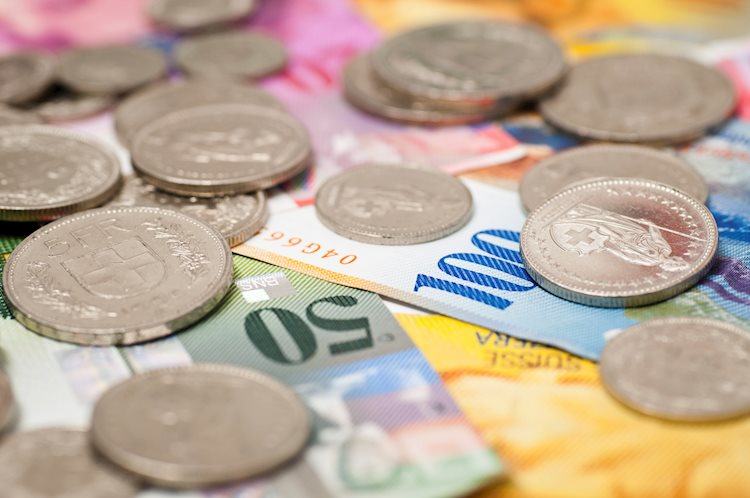The USD/CHF pair has dropped to approximately 0.9030 in the early European session on Tuesday. This decline signals the end of a two-day winning streak, driven by a cautious market sentiment and escalating geopolitical tensions in the Middle East. The Swiss Franc (CHF) is considered a safe-haven currency, and any increase in geopolitical risks could lead to a boost in safe-haven flows, supporting the CHF. On the other hand, the USD may find support from expectations of a slower pace of Federal Reserve (Fed) rate cuts next year and rising US Treasury Yields.
The Federal Reserve (Fed) officials are projecting a reduced number of interest rate cuts in 2025, down to 50 basis points (bps) from the previous estimate of 100 bps. Fed Chair Jerome Powell has indicated that the US will closely monitor inflation levels in the coming year, as elevated inflation concerns policymakers. Meanwhile, traders will be keeping a close eye on developments surrounding geopolitical tensions in the Middle East, as any signs of increased risk could benefit the safe-haven CHF and pose a challenge for the USD/CHF pair. Recent attacks in Gaza by Israeli forces have added to the geopolitical uncertainties in the region.
The Swiss Franc (CHF) is Switzerland’s official currency, and it is one of the top ten most traded currencies globally, with trading volumes that surpass the size of the Swiss economy. The value of the CHF is influenced by various factors, including market sentiment, the country’s economic health, and actions taken by the Swiss National Bank (SNB). Switzerland has a history of neutrality in global conflicts and a stable economy, which makes the CHF a popular safe-haven asset for investors during times of market stress. The currency was pegged to the Euro (EUR) between 2011 and 2015, and the abrupt removal of this peg caused a significant increase in the Franc’s value.
The Swiss National Bank (SNB) meets quarterly to decide on monetary policy, aiming for an annual inflation rate of less than 2%. Any deviations from the inflation target may lead to policy rate adjustments by the SNB. Higher interest rates are generally positive for the CHF as they attract more investors seeking higher yields. Economic indicators such as GDP growth, inflation, and employment figures in Switzerland can influence the valuation of the CHF. The Swiss economy is closely linked to the Eurozone, making stability in the region essential for the Swiss Franc’s performance.
Switzerland’s dependence on the Eurozone for trade and political alliances means that the Swiss Franc (CHF) is highly correlated with the Euro (EUR). The health of the Eurozone economies has a direct impact on the Swiss economy, making it crucial for the stability of the CHF. Positive economic indicators such as high economic growth, low unemployment, and strong consumer confidence are favorable for the CHF, while any signs of weakening economic momentum can lead to depreciation of the currency. Overall, the Swiss Franc remains a popular choice for investors seeking safety and stability in times of market volatility.











